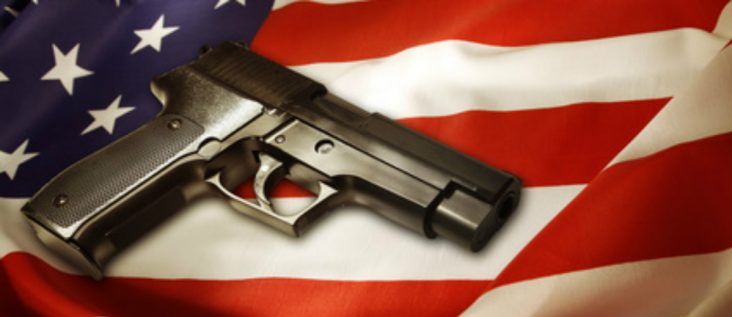House panel advances guns on campus bill
by January 31, 2017 6:21 pm 428 views

The House Judiciary Committee voted Tuesday (Jan. 31) to advance a bill requiring the state’s colleges and universities to allow faculty and staff with concealed carry permits to carry their weapons on campus, despite the objections of university leaders and the University of Arkansas police chief.
House Bill 1249 by Rep. Charlie Collins, R-Fayetteville, eliminates an opt out provision contained in legislation passed in 2013. Under that law, higher education institutions could allow their staff members to carry a weapon, but they also could opt out of allowing them to do so. All of the state’s colleges and universities opted out.
The vote was 12-5 in favor of the legislation.
Collins started his half-hour opening presentation by reading a grim list of massacres that have happened in recent years. Then he recited studies showing that mass killers plan their attacks in a cold and calculating manner in an effort to gain attention for themselves. They enter populated areas and, after perhaps targeting a few victims, shoot randomly with no plan for escape.
“There’s no profile, there’s no ethnicity, there’s no behavior pattern, there’s no geography that would allow you to pluck people out of society and say this person is our next massacre killer,” he said.
He said that he was not offering a “magic pill” and that only “an absolute fool” would argue that citizens should replace police officers. Giving citizens the ability to neutralize an attacker is one of many tools that could prevent mass casualties. He said that Arkansas has a very good concealed carry permit program and that permit holders commit crimes at very low rates – even lower rates than law enforcement officers. Most college attacks are stopped by administrators, faculty, students or the attackers themselves, not by law enforcement, which can take 15 minutes to arrive. He said Utah has had a similar law since 2006 and has had no mass college shootings.
“The benefit of deterring some of these killers easily outweighs the potential for some type of an accident,” he said.
The bill includes a number of exceptions, including for UAMS and the Clinton School of Public Service. Exceptions for all higher education institutions include formal employee grievance hearings and special events if enough law enforcement officers are present.
After an hour of Collins testifying and answering questions, Steve Gahagans, chief of police at the University of Arkansas Police Department, argued against the bill. He recounted his many years of law enforcement experience and said that even with all his training, in simulated situations he still sometimes shoots the wrong person.
Gahagans said police officers undertake extensive training that civilians don’t take, including learning to control for bias, becoming aware of the environment, and noticing what is behind the target. He said that having additional guns on the scene complicates matters for law enforcement personnel who must ascertain the good guys from the threats.
Gahagans said the University of Arkansas covers an eight-square-mile territory and that police officers could arrive at the scene of a shooting within two minutes.
But legislators pointed out that many people can be killed in that amount of time and questioned if officers could arrive that quickly. Rep. Michelle Gray, R-Melbourne, recounted an experience she had as a college administrator when she received word that a disturbed individual was endangering a campus daycare and police would not have arrived quickly.
Also testifying against the bill were Dr. Donald Bobbitt, president of the University of Arkansas System; Dr. Chuck Welch, president of the Arkansas State University System; and Dr. Coy Grace, president of East Arkansas Community College, all of whose campuses had opted out of allowing faculty and staff to carry weapons on campus.
Testifying for the bill was Dr. Blake Robertson, president of Northwest Technical Institute in Springdale, whose school is specifically included in the bill to allow employees to carry a concealed weapon on campus.
